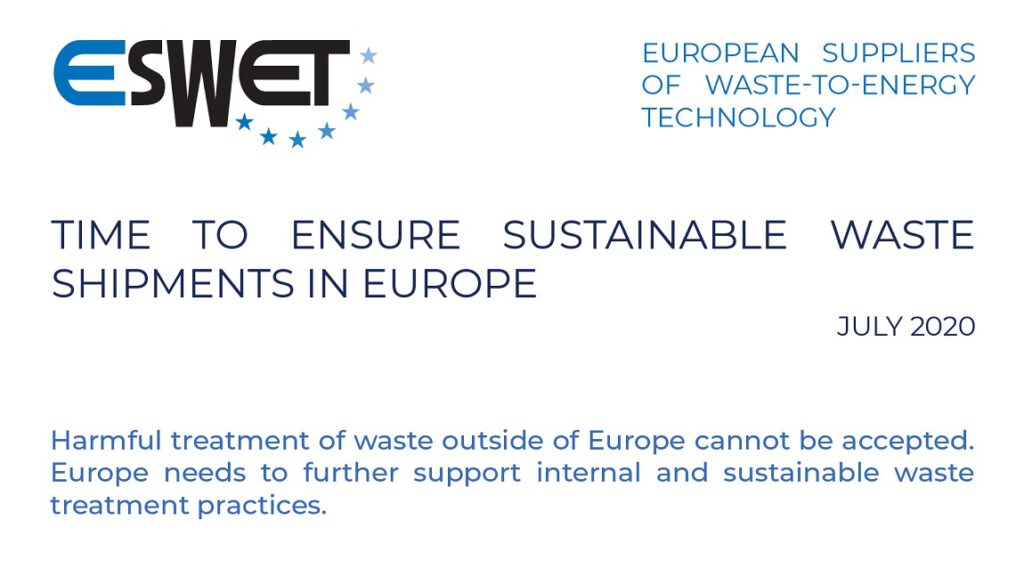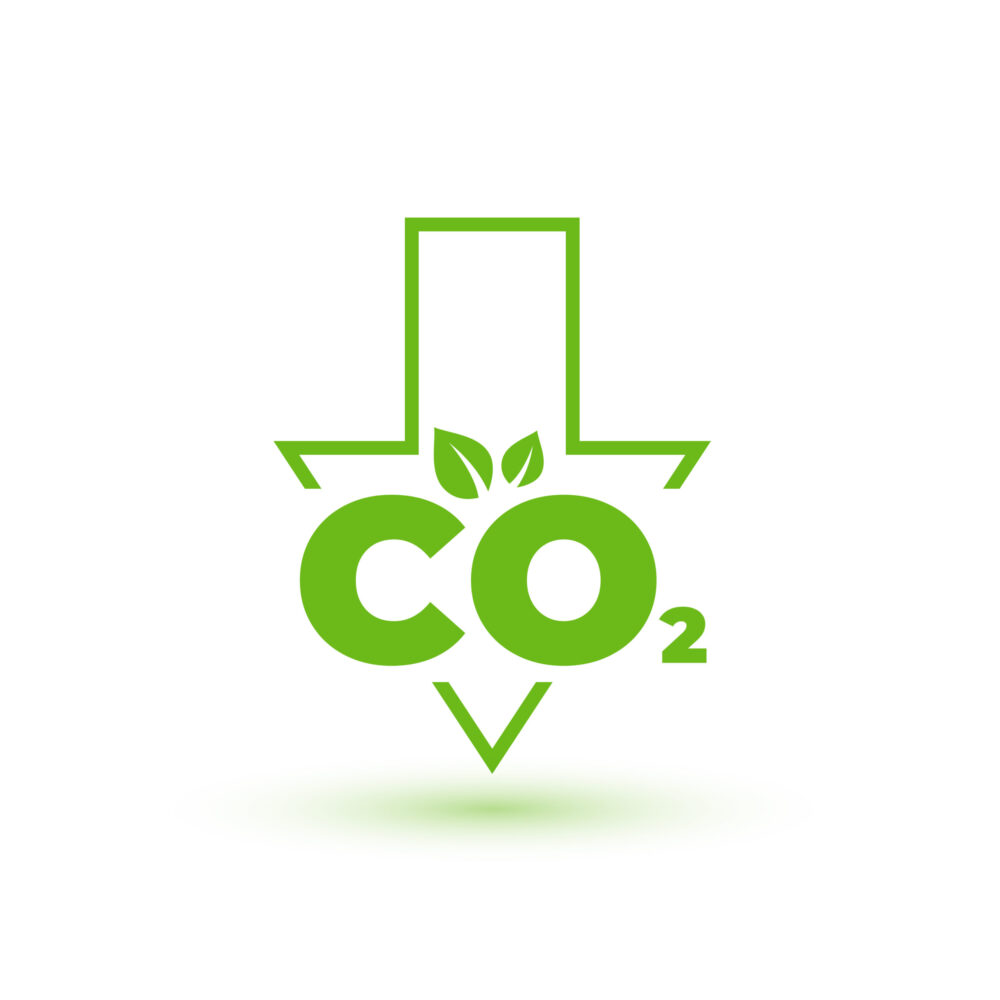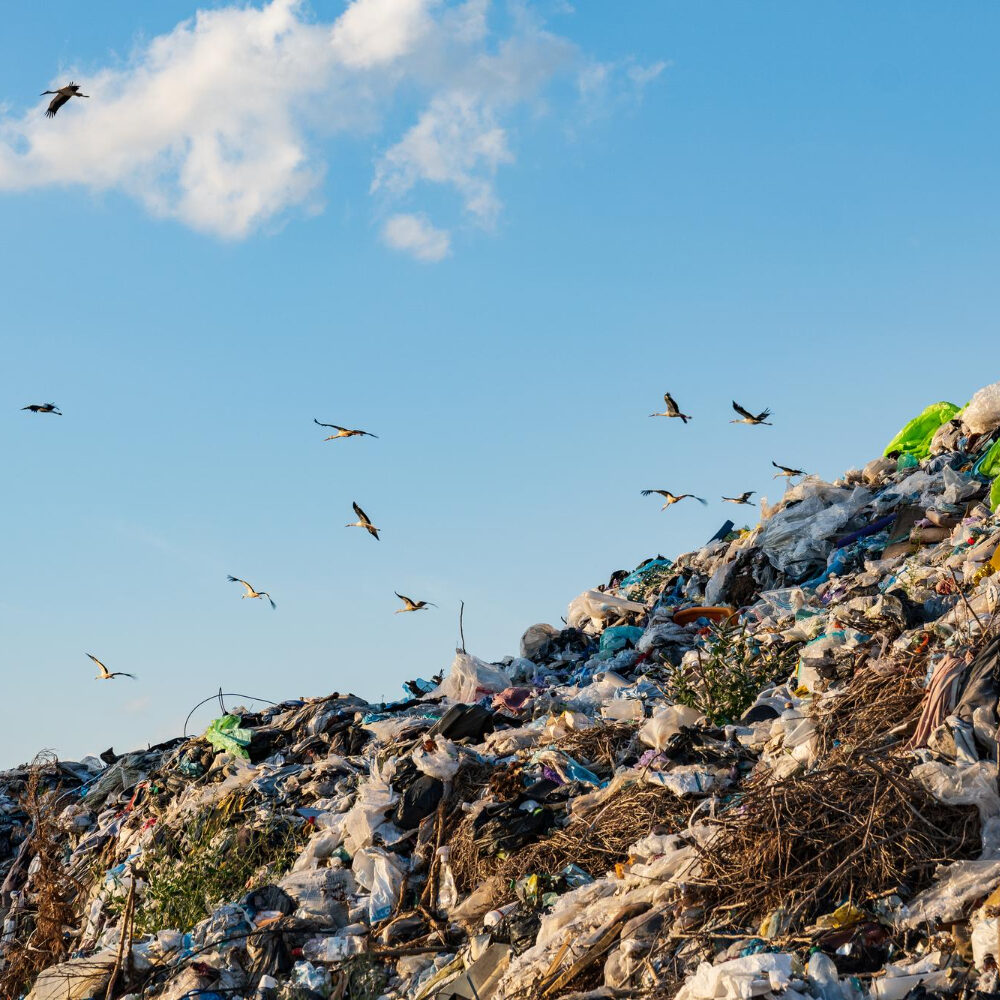ESWET: Time to ensure sustainable waste shipments in Europe
ESWET welcomes the Commission’s initiative to carry out a revision of the Waste Shipment Regulation as a right step in the path of the European Green Deal. Proper waste management is a key aspect of the green transition.

Over the past decades, exports of waste to non-European countries have risen steadily, pushing the waste issue far away but failing to properly address it. Repeated abuses in international waste shipments have highlighted the need for Europe to take care of its waste under EU environmental standards.
For a pragmatic approach on the matter, ESWET releases today a policy briefing with a number of recommendations targeted at an efficient revision of the Waste Shipment Regulation.
- Adopt a proximity approach to waste export, maintaining EFTA countries as a preferential partner.
- Keep the Waste Shipment Regulation flexible enough to ensure the synergy of the waste hierarchy: every level has a role to play in the circular economy for the safe management of waste.
- Further reduce the flow of waste shipped outside of the EU, as sound waste management is often uncertain in non-OECD countries.
- Support the creation of a functioning market for secondary raw materials recovered by the recycling industry and Waste-to-Energy plants.
In order to make waste shipments out of Europe a thing of the past, Europe needs to further support internal and sustainable waste treatment practices. As the waste generation is growing, the need for non-recyclable waste treatment capacity is expected to significantly increase.
It is thus crucial for the EU legislators to consider the role of waste-to-energy in the circular economy as a complementary tool for recycling. Otherwise, non-recyclable waste would be left with no option for treatment but landfills.
The full policy briefing is available here: https://bit.ly/3aNEYko
Other news

ESWET joins call for a stronger Industrial Decarbonisation Accelerator Act
31.10.2025The European Commission plans to propose an Industrial Decarbonisation Accelerator Act in late 2025 to accelerate the clean transition of…

From waste to resource: rethinking what we throw away
03.10.2025“The environmental, social, and economic consequences of food waste are profound…Investing in sustainable waste management — turning waste into compost,…

A call to the EU: avoid a landfill catastrophe
02.10.2025The European Commission is considering the inclusion of Waste-to-Energy (WtE) in the EU Emissions Trading System (ETS). Such a move…